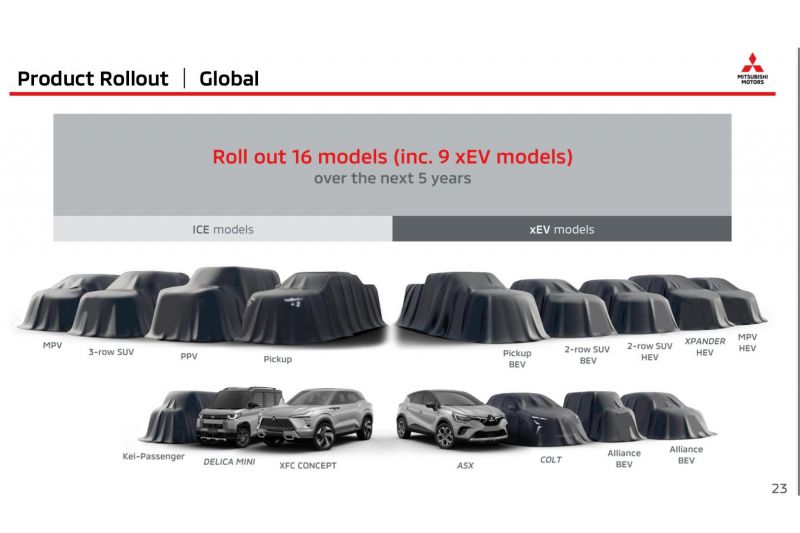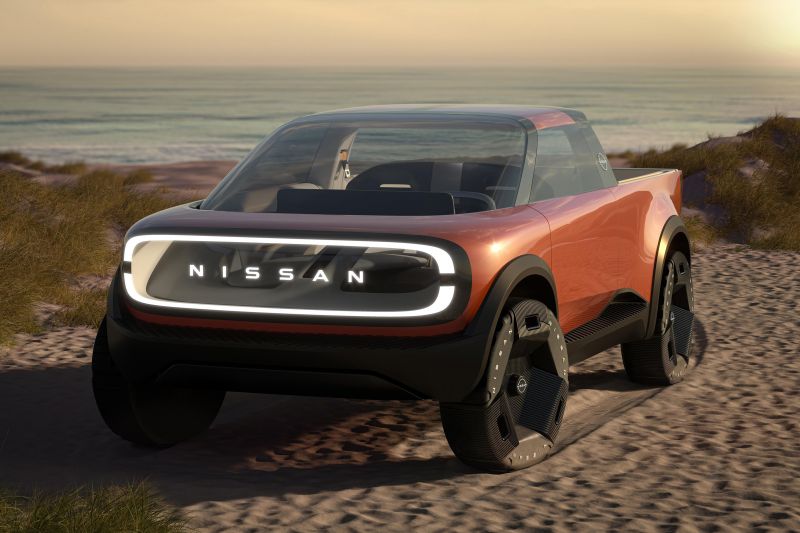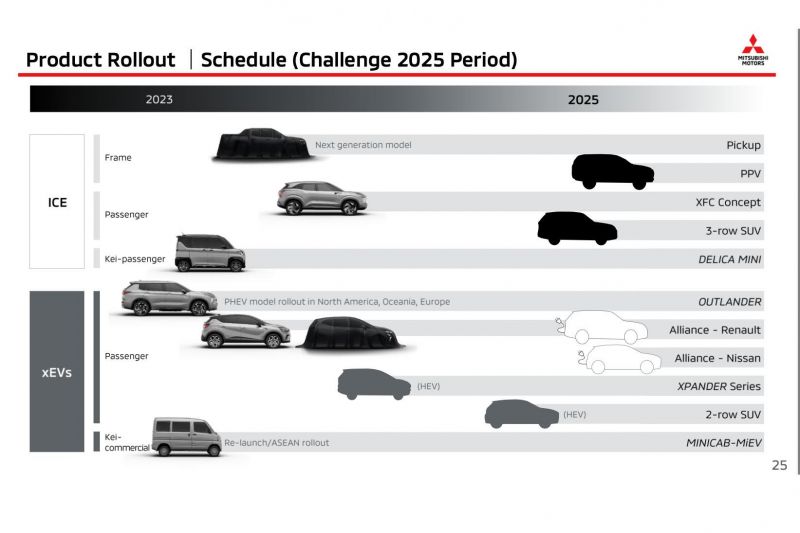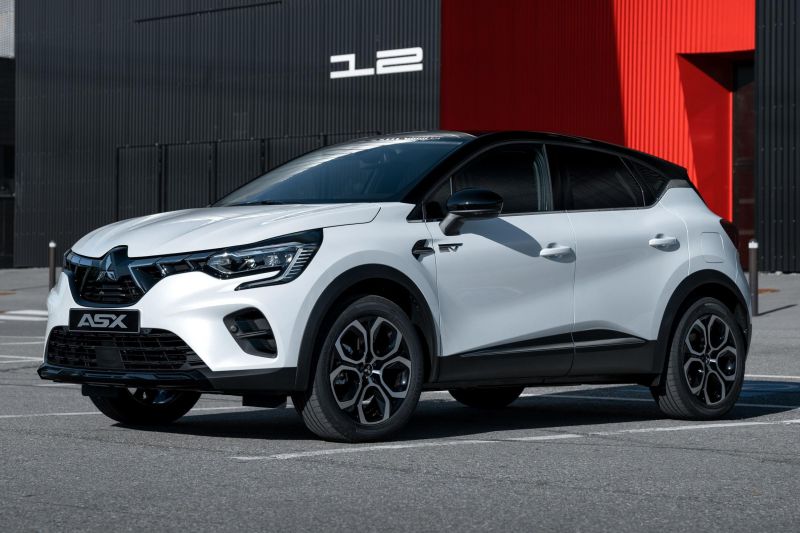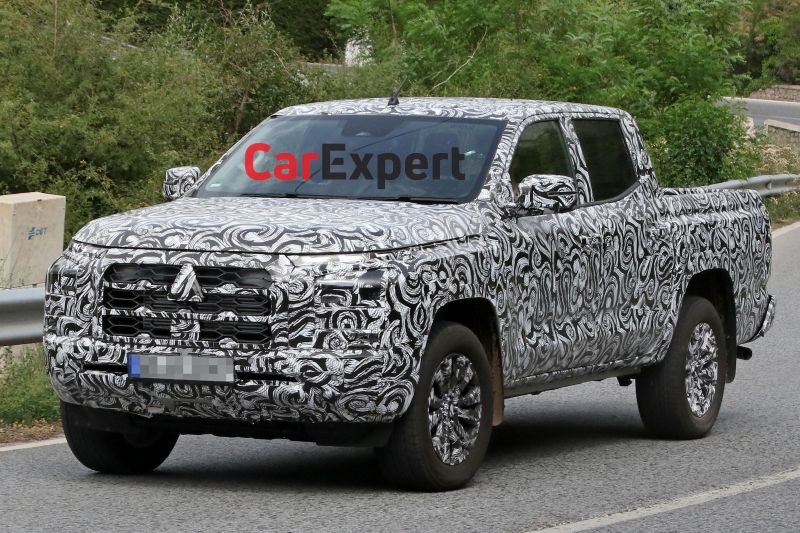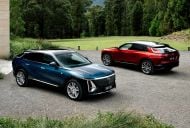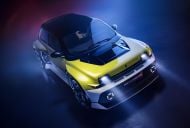Overnight Mitsubishi unveiled its model plans for the next five years, which include 16 new models or variants. Nine of these cars will have a hybrid or fully electric drivetrain, and some of them are destined for Australia.
The most interesting of which is a “Pickup BEV” or electric ute. Its shadowy figure sits beside a covered up version of the next-generation Triton, which is simply listed as a “pickup”.
While the covered Triton has its headlights on, revealing a distinctive light signature that we’ve seen in spy photos, the electric ute is completely hidden.
We don’t know if Mitsubishi’s electric pickup will be an EV variant of the next-generation Triton, or whether it will be a distinct model with a different underpinning.
In the picture released overnight, the shape of the electric ute and new Triton are different. That may or may not be a clue, depending on whether the people preparing the image deck are party to that knowledge.
It’s possible the new Mitsubishi electric ute will be a sibling to a production version of the Nissan Surf-Out concept, which seems to be based on the CMF-EV passenger car platform. If so, it will be more of a lifestyle ute in the mould of the Ford Maverick and Hyundai Santa Cruz than the Triton.
We also don’t know when Mitsubishi plans on launching the electric ute, but it won’t be before 2025 as it is missing from the slide about vehicles due by that year.
Whatever approach Mitsubishi takes, it will likely be accompanied by a Nissan version, as common platforms and shared engineering are big part of Mitsubishi’s revived product outlook after Nissan purchased a controlling stake in the three-diamond brand in 2018.
The new electric ute isn’t the only Mitsubishi EV that could interest Aussies. The other is an “Alliance BEV” that will be sold in “growth driver” and “leverage regions”. The former is Mitsubishi’s term for countries in ASEAN and Oceania, namely Australia.
While the silhouette for the Australia-bound Alliance BEV isn’t very revealing, the other car looks to be a kei vehicle to complement the Nissan Sakura/Mitsubishi eK X twins that are already on sale in Japan.
Other electrified models Mitsubishi is planning to roll out include electric and hybrid versions of unnamed “2-row SUV”. Both of these are also slated for “growth driver” and “leverage regions”, which means it could be on the cards for Australia.
There will also be a hybrid version of the people mover mentioned above, as well as a hybrid drivetrain for the three-row Xpander people mover sold in developing markets.
On the bottom row there’s a new Colt, which we know will be a rebadged Renault Clio. While the Colt seems to be a Euro-exclusive model, the next-generation ASX, a Renault Captur with a different grille, will be sold in “growth drivers/leverage regions”.
That vast grouping includes Asia, Australia, the Middle East, Africa and South America. It’s not clear if the Renault-based ASX will be sold in all these regions, or just a few.
Mitsubishi says electrified vehicles — namely hybrids, plug-in hybrids, and full EVs — will account for 50 per cent of global sales by 2030, and all sales by 2035.
There are seven cars planned with internal combustion engine (ICE) drivetrains.
The most critical is the next-generation Triton, which as we’ve mentioned already is listed simply as a “pickup”. We know this ute is twinned with the new Nissan Navara, and that Mitsubishi is leading the engineering for the project.
Alongside the Triton is a “PPV”, which is an initialism for pickup passenger vehicle, so it’s likely it will be the next-generation Pajero Sport.
Little is known about the “3-row SUV” and people mover that complete the top row, although the latter might be a replacement for the current Delica D:5 that’s been on sale since 2007, and based on the second generation Outlander.
The bottom row includes a new passenger kei car, the already revealed Delica Mini kei people mover, and a production version of the XFC Concept, which we believe is an emerging market model based on an existing Mitsubishi platform rather than a Renault-Nissan-Mitsubishi architecture.





